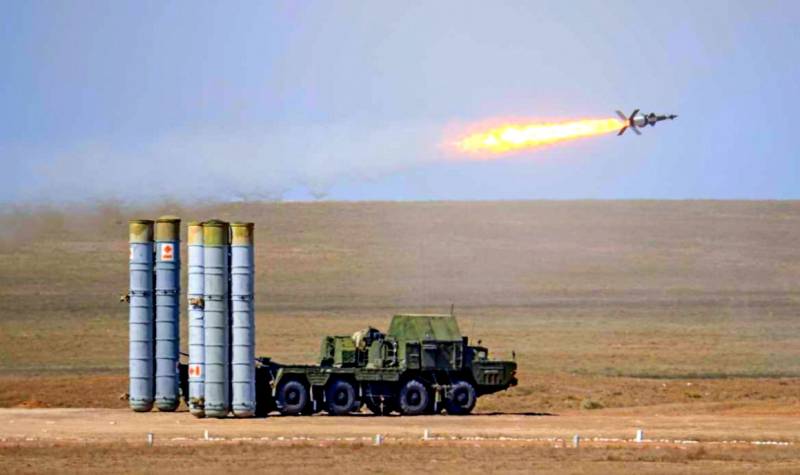Israel has dogged Russia on the issue of S-300
Shortly before Victory Day, Russia announced its readiness to deliver S-300 systems to Syria, for the needs of air defense. But on May 9, Israeli Prime Minister Benjamin Netanyahu arrived in Moscow. This is a coincidence or not, but almost immediately after the visit of the Israeli prime minister, Russian representatives announced that they would not supply the S-300 to Syria.
First, the presidential aide for military-technical cooperation, Vladimir Kozhin, said that negotiations on the supply of S-300 to Damascus were not conducted, and then the press secretary of the Russian president Dmitry Peskov emphasized that the supply of S-300 to Syria was never announced by the Russian side.
Meanwhile, shortly before the Israeli prime minister’s visit, in April 2018, Russian Foreign Minister Sergei Lavrov stated that after the United States launched missile attacks on Syria, Moscow no longer had moral barriers to supply the S-300 systems to the Syrian army. Syria itself claims that these complexes are allegedly already in service with the Syrian army. However, in this case, we are most likely dealing with the usual bravation, which aims to scare opponents of Damascus.
It is clear that on May 9 Benjamin Netanyahu visited Moscow not only for the celebration of Victory Day. Israeli Prime Minister and Russian President met on a very important issue about the current situation in the Middle East. Most likely, Netanyahu and Putin discussed further Israeli actions in Syria in light of growing tensions in the region. Interestingly, on the night of May 8 and 10, Israel launched several attacks on Syrian territory. Iran is threatening retaliatory missile attacks, and Israel is deploying air defense systems. Against this background, the supply of S-300 to Syria would only add fuel to the fire of a new phase of the Middle East conflict.
It is known that Israel has previously turned to Russia with a request not to supply Syria with S-300 systems. Despite the fact that Damascus is an ally of Moscow, the Russian leadership still acts in accordance with common sense. Indeed, the possession of strong air defense systems can create a sense of complete confidence in Damascus and Tehran behind it, which in the future can lead to an escalation of the conflict and the beginning of a full-scale Syrian-Iranian-Israeli war.
Of course, Russia has its own agreements with both Turkey and Israel. Without consultations with Moscow, Israel would not have attacked Syrian territory. Of course, Moscow is not going to abandon the alliance with Iran and Syria, but relations with Turkey or Israel are also very important for it. On the other hand, promises “in which case” to begin delivering the S-300 to Syria serve Russia as an excellent instrument of pressure on Israel. By the way, as soon as Russian officials announced that S-300 deliveries to Syria were not expected, Israel welcomed this statement, stressing that it testifies to the deep respect that exists between the two states.
First, the presidential aide for military-technical cooperation, Vladimir Kozhin, said that negotiations on the supply of S-300 to Damascus were not conducted, and then the press secretary of the Russian president Dmitry Peskov emphasized that the supply of S-300 to Syria was never announced by the Russian side.
Meanwhile, shortly before the Israeli prime minister’s visit, in April 2018, Russian Foreign Minister Sergei Lavrov stated that after the United States launched missile attacks on Syria, Moscow no longer had moral barriers to supply the S-300 systems to the Syrian army. Syria itself claims that these complexes are allegedly already in service with the Syrian army. However, in this case, we are most likely dealing with the usual bravation, which aims to scare opponents of Damascus.
It is clear that on May 9 Benjamin Netanyahu visited Moscow not only for the celebration of Victory Day. Israeli Prime Minister and Russian President met on a very important issue about the current situation in the Middle East. Most likely, Netanyahu and Putin discussed further Israeli actions in Syria in light of growing tensions in the region. Interestingly, on the night of May 8 and 10, Israel launched several attacks on Syrian territory. Iran is threatening retaliatory missile attacks, and Israel is deploying air defense systems. Against this background, the supply of S-300 to Syria would only add fuel to the fire of a new phase of the Middle East conflict.
It is known that Israel has previously turned to Russia with a request not to supply Syria with S-300 systems. Despite the fact that Damascus is an ally of Moscow, the Russian leadership still acts in accordance with common sense. Indeed, the possession of strong air defense systems can create a sense of complete confidence in Damascus and Tehran behind it, which in the future can lead to an escalation of the conflict and the beginning of a full-scale Syrian-Iranian-Israeli war.
Of course, Russia has its own agreements with both Turkey and Israel. Without consultations with Moscow, Israel would not have attacked Syrian territory. Of course, Moscow is not going to abandon the alliance with Iran and Syria, but relations with Turkey or Israel are also very important for it. On the other hand, promises “in which case” to begin delivering the S-300 to Syria serve Russia as an excellent instrument of pressure on Israel. By the way, as soon as Russian officials announced that S-300 deliveries to Syria were not expected, Israel welcomed this statement, stressing that it testifies to the deep respect that exists between the two states.

Information